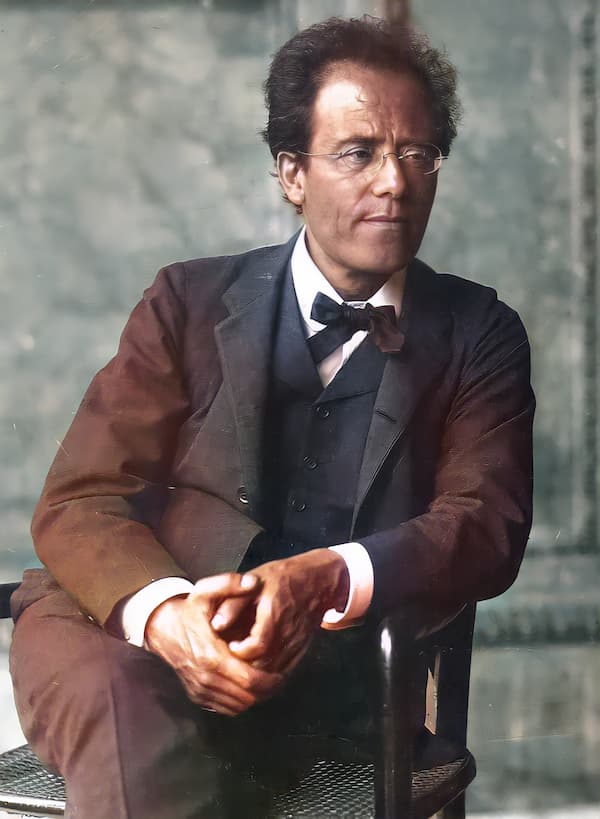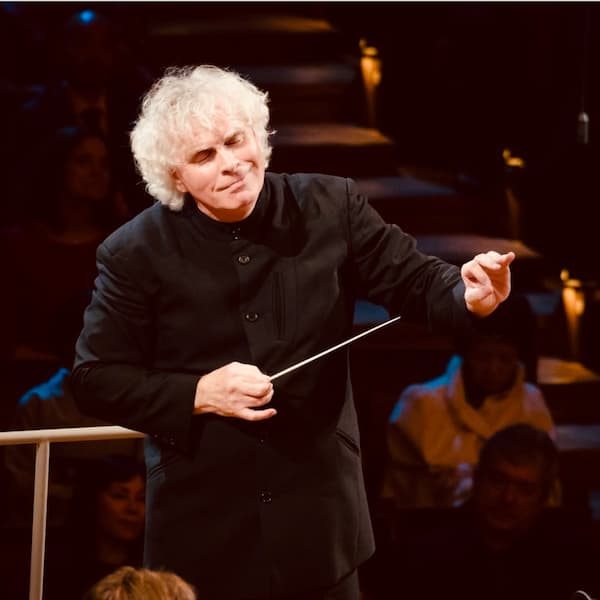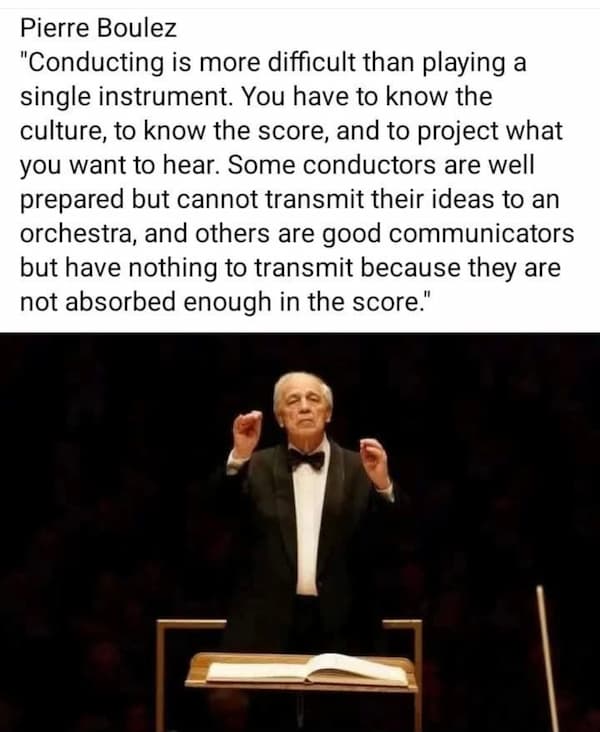We’re in luck. Several conductors have shared their theories about how to conduct. Richard Strauss for example, who was not only a wonderful composer but also an exacting conductor, published these instructive Ten Golden Rules for the Album of a Young Conductor in 1927. We published them in 2015 but many of them bear repeating here:
• Remember that you are making music not to amuse yourself, but to delight your audience.
• You should not perspire when conducting. Only the audience should get warm.
(My teacher Janos Starker used to say, “Don’t be so moved. Move your audiences.”)
• Never look encouragingly at the brass except with a brief glance to give an important cue.
(Richard Wagner quipped, “Never look at the trombones…It only encourages them.” This quote is also attributed to Strauss!)

• But never let the horns and woodwinds out of your sight. If you can hear them at all, they are still too strong.
• It is not enough that you yourself should hear every word the soloist sings. You should know it by heart anyway. The audience must be able to follow without effort. If they do not understand the words, they will go to sleep.
• When you think you have reached the limits of prestissimo, double the pace.
Some conductors do accelerate to unplayable tempos. I’ve experienced it! Strauss later, in 1948, changed his mind: Today I should like to amend this. Take the tempo half as fast.
Conductor and legendary pianist Daniel Barenboim seconds that notion:
“The tempo is the suitcase. If the suitcase is too small, everything is completely wrinkled. If the tempo is too fast, everything becomes so scrambled you can’t understand it.”

Herbert von Karajan, the famed conductor of the Berlin Philharmonic added, “Quick music sounds dull unless every note is articulated.”
Renowned composer and conductor Gustav Mahler agreed, “If you think you’re boring your audience go slower not faster.”

Gustav Mahler
There are a lot of opinions on how to interpret music and there are often differences in timing and tempo. Take Beethoven’s famous opening to his Symphony No. 5. I think you’ll be surprised by the versions of the first four bars from Carlos Kleiber, Claudio Abbado, Herbert von Karajan, Pierre Boulez, Bruno Walter, and John Eliot Gardiner. Carlos Kleiber with Vienna plays in a refined style, while Pierre Boulez leads a diabolically slow opening to the 5th.
Comparing 5 conductors VERY different openings of Beethoven 5th Symphony (& why they chose that)
Aside from being a timekeeper, what more does a conductor do? During an interview when asked this question, Sir Simon Rattle responded, “It’s one of the great fake professions…We are nothing without the orchestra…”

Sir Simon Rattle
Simon Rattle | What Does A Conductor Actually Do?
South Korean pianist and conductor Myung Whun Chung recently elaborated,
“A conductor almost by definition is a strange animal; he is the only musician on stage that makes no sound, yet he is responsible for everyone else’s. I often would like to think of myself as just a colleague or collaborator with the other musicians, but ultimately, we must come together to be the truthful messengers of the composer we play – and make their music come alive!”

Like other professions, sometimes there’s a domineering and controlling boss. We orchestral players have been subject to heavy-handed conductors, ones we disagree with, or even incapable ones we must ignore.

We’re surprised that Herbert von Karajan, the maestro with a legendary sound, who was an autocrat, once said, “The art of conducting consists in knowing when to stop conducting to let the orchestra play.”
And this is fascinating. Simon Rattle on Karajan:
Simon Rattle on Herbert von Karajan
Leonard Bernstein, who was the music director of the New York Philharmonic from 1957-1970 and recorded with them until the end of his life, puts it in a nutshell,
“Conducting is like making love to a hundred people at the same time.”
The wonderful thing about music-making is that each orchestra has a personality and will sound different depending on the maestro in front of them. And we can tell from the first upbeat in the music whether the leader is any good. One conductor will inspire a refined, polished sound while another will coax a more robust and aggressive quality, and everything is reflected through the different people onstage.
Conducting gestures vary. The stick or hand technique is essential, but every gesture, facial expression, and overall body language matters.
Here’s an illustration:
Breaking down orchestra conducting gestures to show you what they mean
Many conductors have an affinity to certain music and a predilection for conducting those works. Our former music director Osmo Vänskä, for example, was terrific with the works of Jean Sibelius but not comfortable with French music. The Minnesota Orchestra’s complete recordings of all the Beethoven Symphonies are considered one of the best, especially of the 4th and 5th symphonies. Other wonderful interpreters include Otto Klemperer, Riccardo Chailly, with Leipzig Gewandhaus orchestra, and Carlos Kleiber. Wilhelm Furtwängler’s Beethoven No. 9 performance at the Bayreuth Festspielhaus live in 1951 is notable, and Karajan of course.
Watch this rare live video of excerpts of Beethoven Symphony No. 9 being rehearsed and performed by Herbert von Karajan and the Berliner Philharmoniker. It’s their New Year’s Eve concert of 1977 and was the first ever to be broadcast live.
Excerpts of Beethoven’s 9 rehearsal and performance by Herbert von Karajan (1977)
Some composers inspire controversy, and Maher was certainly one of them. Gustav Mahler, the Vienna Philharmonic and Vienna Opera conductor from 1898-1901 and beyond, is quoted as saying, “A symphony must be like the world. It must contain everything.” Admired Mahler interpreters include Leonard Bernstein, who was critical in reviving Mahler’s music.
Claudio Abbado, Klaus Tennstedt, Rafael Kubelik, and Sir Simon Rattle, who says, “The Mahler virus is incurable,” are also noted Mahler interpreters. But here’s a caveat from von Karajan.
“Mahler’s music is full of dangers and traps, and one of them, which many fall into, is over sensualizing the thing until it becomes sort of …kitsch.” (‘Kitsch’— when art is considered in poor taste due to garishness or sentimentality.)
From Maestro: Encounters With Conductors of Today
Helena Matheopoulos book “Maestro” consisting of interviews with the world’s twenty-three top orchestral conductors.

Conductors tend to disagree on this subject too. One’s tasteless interpretation is another’s deep revelation.
Strauss even said so, “Must one become seventy years old to recognize that one’s greatest strength lies in creating musical kitsch?”
You might ask, can an orchestra play without a conductor? Of course we can.
I recently came across an outstanding orchestra that plays without a conductor. Now don’t get me wrong. There is a long tradition of smaller ensembles, chamber orchestras, that play without a conductor. In fact, we have one here in the Twin Cities of Minneapolis and Saint Paul—the Saint Paul Chamber Orchestra. Their stellar performances often lead me to say, “they must be psychic!” as they do not only relegate themselves to so-called classical repertoire of Haydn and Mozart, but they play challenging contemporary works such as Bartók Divertimento, with aplomb and brilliance.
The Going Home Project Orchestra based in Korea plays large-scale works without a conductor including, Stravinsky Rite of Spring, an exceedingly complex work with difficult rhythms and tempo changes. Uncanny. I was flabbergasted at their brilliance as well as their impeccable ensemble. The famous bassoon opening is gorgeous, and the playing of the orchestra throughout is virtuosic.
Self-conducted Live Performance of “Le Sacre du Printemps”
But the maestro can make magic happen onstage and then it’s inexplicable even to us. Whatever the interpretation we agree with von Karajan,
“To be involved professionally in a thing as creative as music is a great privilege and we have a duty to make in such a way that we can help bring pleasure and a sense of fulfillment to those who are not so fortunate {to be able to play music}.” From Osborne’s Conversations.
I hope this explains conducting. But if you’d like to know more, here is a delightful interview with Simon Rattle, who speaks candidly about his art.















